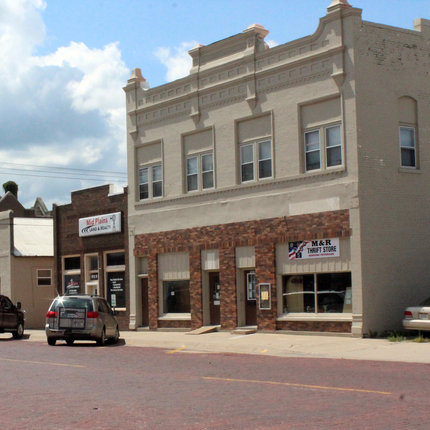With the passage of the bipartisan infrastructure law last November—a $1.3 trillion investment in our nation’s infrastructure—major funding is now available to rural communities. These funds can be used to rebuild roads and bridges, invest in high-speed internet access and clean drinking water, and upgrade electric power infrastructure.
However, just because these funds are available does not necessarily mean they are accessible. Rural communities often find it difficult to navigate funding opportunities because they lack the capacity to research and apply. Grant applications can be complicated and time-consuming. They often require extensive research, documentation, and technical writing skills. Additionally, some grants or programs require communities to provide matching funds, which is a barrier to resource-constrained communities that do not have excess funds on hand. Many rural communities operate with limited staff and may not have the expertise or time available to apply.
The Biden-Harris administration has made it a priority to address this issue by investing in rural communities that are often left behind. As part of these efforts, new initiatives have been launched or introduced—the Rural Partners Network, the Communities Local Energy Action Program (LEAP), and the Office for Rural Prosperity.
The Rural Partners Network, an effort led by the U.S. Department of Agriculture, launched in April with the goal of transforming the way federal agencies partner with rural communities to create economic opportunity. The program will begin as a pilot in five states with the long-term goal to be implemented in every state. Federal field staff will be located in rural communities to assist local leaders with navigating and accessing federal resources. The staff will also identify challenges faced by rural communities to inform the Rural Prosperity Interagency Policy Council that works to ensure rural places are prioritized at the federal level.
The U.S. Department of Energy (DOE) created the Communities LEAP (Local Energy Action Program), which will provide targeted technical assistance to low-income, energy-burdened communities that are affected by a transition away from fossil fuels. 22 communities were selected, including the Iowa Tribe of Kansas and Nebraska, to participate in the pilot program. These communities will receive support from the DOE to create a community-driven action plan focused on reducing local pollution, increasing energy resilience, and lowering utility costs and energy burdens.
Additionally, Congresspersons from Iowa, Nebraska, and a few other states introduced a bipartisan bill to establish a permanent Office for Rural Prosperity. The office would ensure federal dollars earmarked for rural communities are actually spent there and ease access to government services for rural Americans.
These three initiatives demonstrate that the federal government is serious about prioritizing rural America. Often overlooked or sidelined due to a variety of challenges, rural communities now have a more equitable opportunity to access federal programs and funding.





